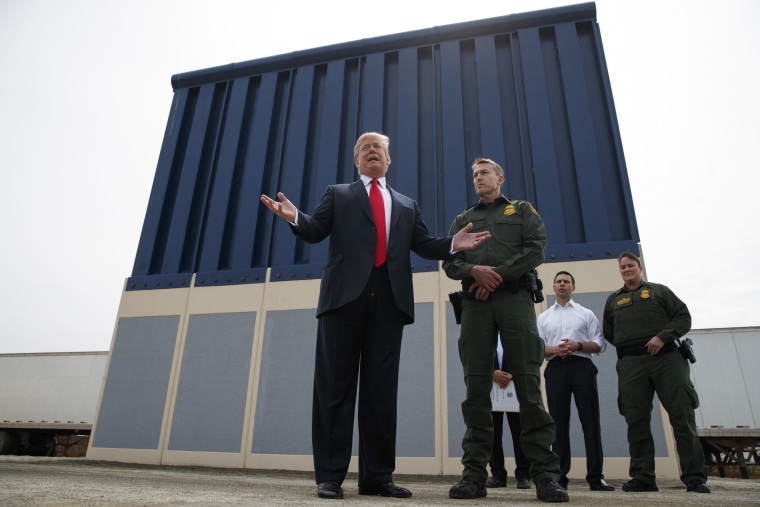When making the case for a border wall, Donald Trump has a handful of core talking points, including his steadfast belief that a giant barrier would end the drug trade. As the president sees it, illegal drugs pour into the United States via Mexico, but if there were a wall in place, the problem would effectively disappear.
The problem, of course, is the overwhelming evidence that drugs reach American soil by way of ports of entry, which are already heavily guarded. A wall obviously wouldn't make any difference.
Trump, however, has decided not to believe the evidence. Here's what he said at a White House cabinet meeting yesterday:
"We could save billions and billions of dollars in cost and hundreds of billions of dollars in drugs and what they're doing to us with drugs. And so much of it comes through. And don't believe people when they say it all comes through the portals; it doesn't -- the ports of entry. It comes through -- the big loads come through the border, where you don't have wall, where they can drive a truck, a big truck, loaded up with drugs or loaded up with this thing called a 'human cargo.' Human cargo."These are traffickers. These are the worst people on Earth. And they don't come through the ports of entry with people in the back of a car tied up. Could never do that. They come through areas where there's no barrier."
For now, let's put aside the fact that the president still doesn't understand the basics of human trafficking. Let's instead turn our attention to Trump's assertion that the evidence about drugs coming through "the portals" is not to be believed.
The Republican made a similar comment during his recent interview with the New York Times, insisting, "[U]nlike what the Democrats say, they don't, you don't bring trucks of drugs through the checkpoints. You bring trucks of drugs by making a right 20 miles, and a left into the country."
The trouble is, it's not just what "the Democrats" say; it's what the Drug Enforcement Administration says.
As New York magazine recently noted, "As the Drug Enforcement Administration explained in a 2016 report, the most common method for smuggling narcotics into the U.S. involves driving them right through legal ports of entry, camouflaged with legitimate commercial goods. There is no reason to think that a border wall would meaningfully disrupt the North American narcotics trade, let alone stem the tide of opioid overdoses that is the former's most baleful consequence."
If Trump doesn't want to read the report, he could check out press releases from Customs and Border Patrol officials, which say the same thing.
Alternatively, the president could watch news coverage of the recent trial for Joaquín Guzman ("El Chapo"), which featured ample discussion about his criminal operation smuggling drugs through ports of entry.
And yet, there's Trump, telling Americans not to believe any of this, confident that his assertions, based solely on what he thinks ought to be true, deserve to be treated as fact.
Or put another way, the president looks at the DEA the same way he looks at American intelligence agencies: as sources of annoying information that he prefers to supplant with his own baseless assumptions.
